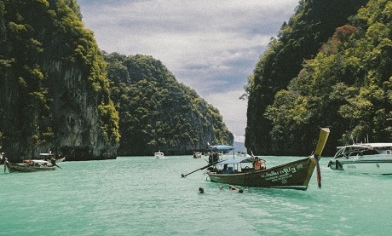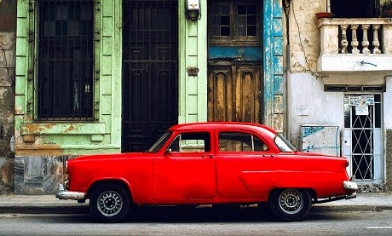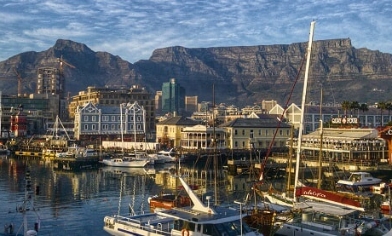Healthcare for Brits in Mexico
The Foreign, Commonwealth and Development Office (FCD) travel advice for Mexico warns that medical facilities may not immediately agree to treat you under the terms of your medical travel insurance, so it’s advisable to have accessible funds to pay for any medical care you might need. If you are in this situation, you may still be able to make a claim on your travel insurance for a refund of costs incurred, so make sure you maintain all documents you receive as part of your treatment and request an itemised list of payments.
Zika virus has been reported in Mexico, as well as other dangerous mosquito-borne infections and viruses. Taking care to avoid being bitten is important, and there are a few simple steps you can follow to minimise the risk of insect bites.
Food and drink can pose a risk to your health as well. While most food is considered safe, do not eat anything that has not been properly cooked, has been left out for any length of time or is raw. Only drink boiled or bottled water and use this when brushing your teeth as well. Avoid taking ice in your drinks. If you haven’t bought bottled water from a supermarket, check that the seal isn’t broken and that it appears completely clear and free of particles.
Some of Mexico is at a high altitude, including Mexico City. This can make you feel a bit unwell if you’re unused to it, and Travel Health Pro have a guide for altitude sickness and what to do if the altitude affects you.
Travel risks in Mexico
Most journeys that British tourists make to Mexico are trouble-free but there are places where ongoing situations can be dangerous for visitors. Certain areas in the North of the country and at the border with the US have seen significant violence due to the trade in illegal drugs, and such areas could be unsafe for British visitors.
Mexico is also prone to a number of natural disasters that it’s worth preparing for. Hurricanes and earthquakes are both possible. Hurricanes normally occur between June and November and, while they mainly affect coastal areas, they can also travel large distances inland. Hurricanes may also contribute to other, more localised disasters like landslides and flooding.
Earthquakes also occasionally occur, and tremors are common. Earthquakes can cause fires and buildings collapse, so make sure you know whether the area you’re visiting is prone to earthquakes and what to do if one happens. There are apps that can warn you about oncoming shakes.
Things to bear in mind
Tourist destinations in Mexico receive extra protection and security from the state and generally considered safe, however danger can’t be entirely ruled out and it’s important to remain vigilant against the sort of crime that you would in anywhere new.
Always keep your eye on your drinks and don’t accept drinks bought for you by strangers. Avoid travelling alone, especially at night. Make sure that belongings are securely stored, for instance in room safes, and make sure items are protected when you go to the beach. We have a guide on how to avoid scams while on holiday which can help, especially if you’re in crowded areas.
It’s recommended not to leave the tourist areas you are visiting, and if you travel around, to do so as part of an organised group. Try not to wear visible jewellery or carry expensive-looking equipment, and avoid using public cashpoints if possible.
Entry requirements
You don't need a visa to visit Mexico as a tourist, but you may for other types of visit. You'll be asked to fill in an immigration form when you arrive, and it's vital to keep hold of this as you will be asked to provide it when you leave. Check the entry requirements for Mexico according to the FCDO.
You can get a Forma Migratoria Múltiple - like a visa but not quite the same thing - online but your passport will need to be valid for at least 6 months from the day you arrive in Mexico.
Do I need travel insurance for Mexico?
It isn’t compulsory to have travel insurance for a visit to Mexico, but it is advisable and can give you reassurance against the unexpected when you go.
For one thing, it will cover the costs of any emergency medical treatment if you fall ill or are injured while you’re away, as well as repatriation if you need to be flown home. It's important for instance, to make sure you have cover for Covid-19 related disruptions while you're on holiday.
Choose a quality travel insurance policy with the right level of cover and it will also protect you against travel delays and disruption, having to cancel or cut short your trip for reasons out of your control, or belongings that are lost, damaged or stolen – like your passport or luggage.
Am I covered for activities in Mexico?
Many of Mexico’s tourist destinations offer loads of outdoor and adventure sports. Before you take part in the activities on offer, make sure you’re covered for it. Things that you might not consider dangerous may be considered risky by insurers. It’s therefore important to read your policy thoroughly before booking yourself into something.
If you find something you absolutely have to get involved in and you’re not covered, speak to your insurer. Some provide add-ons for adventure sports where the cover goes further, but you need to make sure to purchase any add-ons prior to going away. If you take your policy document with you, you can check your cover if you feel like being spontaneous.
Remember that healthcare in Mexico isn’t free, and medical cover would be necessary if you were to get hurt or fall ill. Check whether your insurer can pay your medical expenses for you or whether you will need to pay upfront and be reimbursed at a later date.
Is Mexico in Caribbean for travel insurance?
The southeast coast of Mexico may be brushed by the clear blue waters of the Caribbean Sea but whether it’s classed as part of the Caribbean for travel insurance purposes depends on the provider.
Some insurers group Mexico, the USA, Canada and other destinations in and around the Americas together in a single ‘worldwide’ group for the purposes of providing cover. At Post Office, for instance, Mexico is classed as part of this worldwide group.
Always check the latest travel advice
Before you travel, check the latest Foreign, Commonwealth and Development Office (FCDO) advice for your destination, as travelling against this advice may invalidate your travel insurance.




























